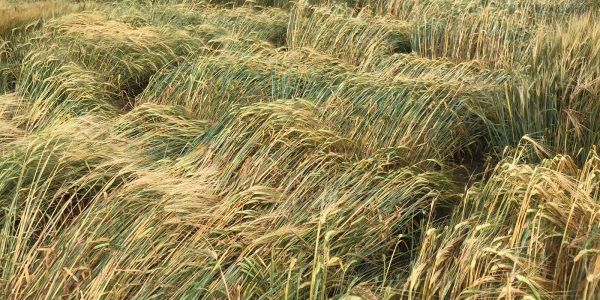Lexi Earl
View this author's profilePosts by Lexi Earl
AfriPlantSci 2019: Healthy Plants, Healthy People, Healthy Planet: Building African capacity to tackle African Plant Health Challenges in Africa
July 24, 2019
This post is written by Dr Silvia Busoms and Assoc Prof Levi Yant It’s an exhilarating time for outward-looking researchers who wish to engage with the rest of the world. It has never been easier to make links with like-minded workers anywhere to team up together to tackle real world problems. As a result, international research …
Meet the Beacon: Dr Christopher Moore
July 18, 2019
Dr Chris Moore is a geneticist and the Future Food Beacon technologist. He is based in Deep Seq, where he performs DNA sequencing and provides genomics support for Future Food researchers. Chris helps researchers to plan their sequencing projects, carries out the lab work and transfers data to bioinformaticians, such as Dr Michael Wilson, for …
Future Food Collaborators: Luisa’s Vegan Chocolates
July 9, 2019
Luisa Vicinanza-Bedi is a chocolate maker based in Sneinton Market in Nottingham. Her company, Luisa’s Vegan Chocolates, makes bean to bar chocolates using cocoa beans sourced directly from farmer’s around the world. Luisa is collaborating with the Future Food Beacon on an Innovate UK project in Colombia. Luisa spoke to Lexi Earl about her company, …
Meet the Beacon: Prof David Salt
June 19, 2019
Professor David E. Salt is the Director of the University of Nottingham’s multimillion pound Future Food Beacon of Excellence. Prof Salt left the UK after his PhD in 1990 to work as an academic in the US where he became a Full Professor at Purdue University in 2005, and where, from 2004 – 2007, he was the …
Giant Swamp Taro: plant for the future?
June 7, 2019
Giant Swamp Taro (Cyrtosperma merkusii) is an underutilised but highly productive plant native to the North Sulawesi region of Indonesia. It can grow up to 5 metres tall, and may produce tubers underground that are 2 metres in diameter and up to 3 metres in length. It grows in flooded, brackish conditions. This makes it an …
Global-local knowledge systems for innovation and entrepreneurship in the developing world: An international workshop in Nottingham, 2-3 May 2019
May 29, 2019
This post was written by Dr Bin Wu and Dr Peter Noy. About 2 billion people (two thirds of the population) in the developing world live on about 500 million small farms, defined as plots of land smaller than 2 hectares. Smallholder farmers are “knowledge-rich, but economically poor” and there is a significant gap in …



Recent Comments